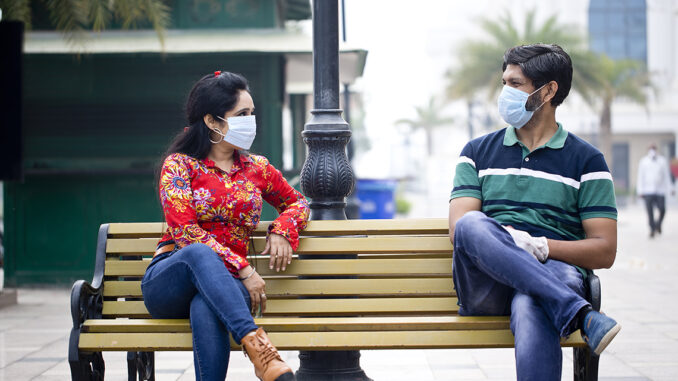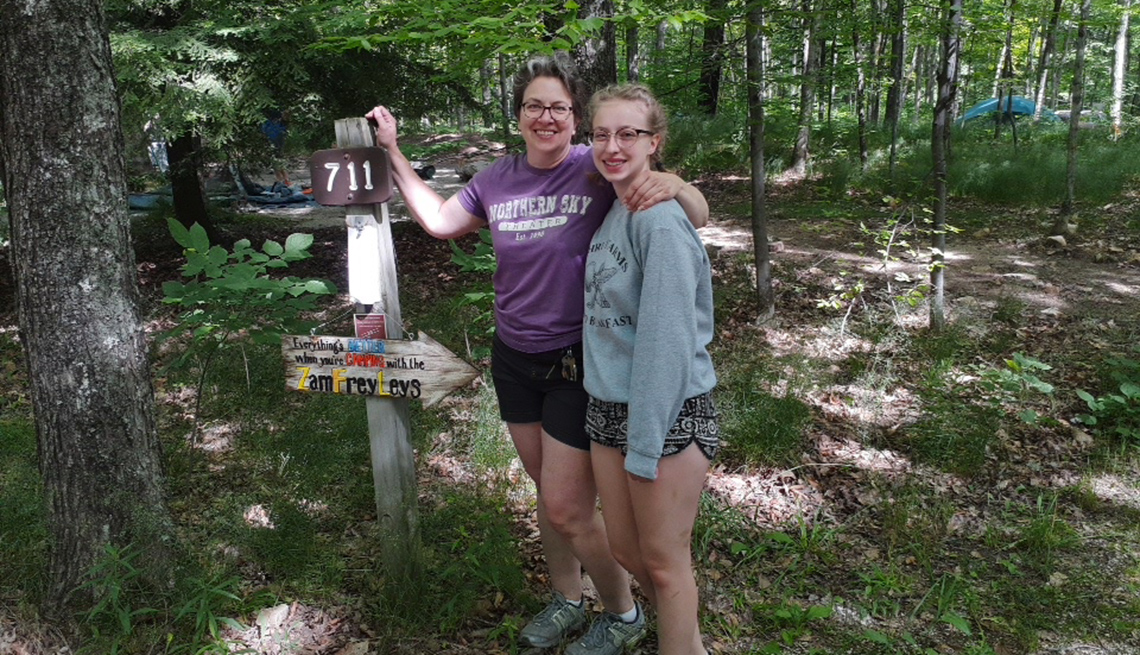
Find new ways to communicate about gatherings, mask wearing and more
What happens when close friends invite you to join them on a vacation, but you’re not comfortable with their quarantine protocols? How about if a pal asks you over for a home-cooked dinner at the kitchen table, but you’re sticking to al fresco socializing? What if you ask your buddy to go on a road trip but she wants you to wear a mask in the car?
The question is how to navigate — or even turn down — these pleasant offers without offending anyone or damaging friendships.
COVID-19 has affected every facet of our lives, including how we socialize. When people have different comfort levels with everything from masks to group outings, keeping friends from feeling insulted or judged can be a challenge, says Gayle Whitlock, a marriage and family therapist in Santa Rosa, California.
Varied requirements around social distancing from state to state and even among regions have prompted many people to develop their own “boundaries and comfort levels,” Whitlock says. “Some people are more risk adverse and some are rule followers, and that’s going to seep into relationships.”
Jim Owen and his wife, Stanya, both 79, recently moved from Austin, Texas, to San Diego. Their closest friends, both in their 80s, wanted to host a going-away meal at a restaurant, something Owen insisted was too risky.
The friends were “indescribably hurt by this, because in their minds, we’re as close as family, so we would be safe,” says Owen, an author and producer of the coming documentary The Art of Aging Well. “We said, ‘We promise we will see you again. We just cannot see you now.'”
Brainstorm together to reach consensus
To prevent hurt feelings or to negotiate terms everyone is comfortable with, focus on the relationship and not the specific activity being suggested, says Shasta Nelson, a friendship expert in San Francisco and author of The Business of Friendship. “The goal is not the cottage or the restaurant or the party. The goal is the relationships you foster in those settings,” Nelson says.
If you’re the host or initiating a visit, it’s your responsibility to cater to the needs of everybody you’re reaching out to, she says. Make sure you are up front about who is likely to attend — don’t invite surprise guests.
“Treat it the way you would with friends that don’t have the same amount of money,” Nelson says. “You wouldn’t talk somebody into something that was beyond their financial ability, so offer up options to make this work and express acceptance.”
On the flip side, when you’re invited somewhere, speak up and be clear about your expectations around masks, indoor and outdoor interactions, and social distancing. Be transparent: If a teen in your house was tangentially exposed to someone who might have the coronavirus, for example, be up front about it and let the friend decide on their risk tolerance. “Don’t feel bad about it. Brainstorm together, and put it on everybody to make this as safe as possible,” Nelson says.
That’s what Donna Walls, 69, has been doing with her circle of friends.
“I’m not shy at all about asking friends what they’re comfortable with,” says Walls, a nurse and lactation consultant in Dayton, Ohio.
For years, Walls and six other women met monthly for lunch. Then COVID-19 hit. At first, they all stayed home. Then they agreed as a group that eating outside, far apart at a table, might be OK.
“One of us has health issues, and we want her to be around for many more lunches, so we brought it up: Who’s comfortable? Who’s not?” Walls says. “Being able to say, ‘This is where I draw the line’ helps.”
Virus risk tolerance differs
In Milwaukee, Julie Rowley, 53, embraced a heightened level of safety after a young family member tested positive for COVID-19. She does curbside pickup when shopping, wears a mask, doesn’t host friends over or visit others’ homes. And yet, during a recent camping trip, two other families decided her standards were too relaxed: Despite the fact that each family had its own campsite and the groups didn’t share food, Rowley’s friends worried that the teenagers in the group wouldn’t keep their distance while hiking.
Courtesy of Julie Rowley
Julie and her daughter Magdalyn on the camping trip.
“I suggested we talk about what we felt was safe, and we decided they just needed to be checked on once in a while,” says Rowley.
But what if there’s no middle ground? Because Sally Rosenthal’s 70-year-old husband has a heart condition, she’s been extremely vigilant since the pandemic surfaced.
“I’m so afraid that I am on perpetual guard, and I’m inflexible when it comes to masks, social distancing and sharing meals,” says Rosenthal, a writer in Boston.
“It’s not that my friends are reckless; they just take more risks than I do: They’ll have dinner at one another’s houses, readily take off their masks and sit closer than 6 feet away,” she says. “I find getting together with people now is often stressful, not social.”
Rosenthal recently declined a dinner invitation on a friend’s patio because she refused to take the elevator or walk through their condo to get outside. And while she has eaten in friends’ backyards — bringing her own food and utensils — her friends have learned it’s her way or nothing.
“I realize I’d have much more fun if I could lighten up,” Rosenthal admits. “They seem understanding, but I know they think I’m taking the CDC recommendations too much to heart.”
Some friendships may be at risk
Discussing our expectations and fears about the coronavirus is complicated, notes Seattle-based psychotherapist Gina Handley Schmitt, author of Friending: Creating Meaningful, Lasting Adult Friendships.
“This has become a really divisive topic; the longer the pandemic persists and the more we see these spiking numbers, the more people are getting antsy,” Schmitt says.
Friends who have always been honest and assertive with each other will likely continue that pattern with open discussions about etiquette around socializing. But if that type of forthright communication wasn’t the norm previously, it will be challenging.
“Now, you’re feeling the need to implement more boundaries, but there’s no history or precedent of [having those types of discussions] in a healthy way,” she says.
Whitlock acknowledges that some friendships — especially if both people are deadlocked in their individual viewpoints — might not make it through this crisis.
“A relationship is a two-way scenario,” she says. “If someone is blatantly not respectful of your concerns about health and safety and won’t have that conversation with you, then maybe it’s time to take some space from that relationship.”
4 Tips for Discussing COVID-19 With Friends
1. Try not to judge: “A healthy friendship is where both people feel seen in a safe and satisfying way,” says friendship expert Shasta Nelson. “If either person feels like they can’t speak their truth … we walk away feeling judged or blamed or rejected.”
2. Be transparent: Share both your expectations and comfort levels, as well as any risks, to allow everyone to make educated decisions about socializing.
3. Shift the conversation: If you’re not comfortable with the way a friend wants to socialize, focus on your own way forward instead of the actions of others. “We may have to be distant from each other, but that doesn’t mean we have to be emotionally distant,” says therapist Gayle Whitlock.
4. Don’t argue about it: If wearing a mask and staying outdoors is nonnegotiable, don’t try to convince friends with other views, says psychotherapist Gina Handley Schmitt. “Physical and emotional safety aren’t areas that make for great compromise,” she says.



Be the first to comment